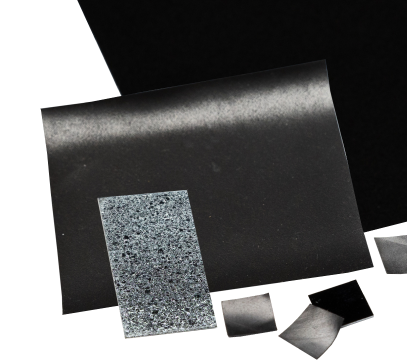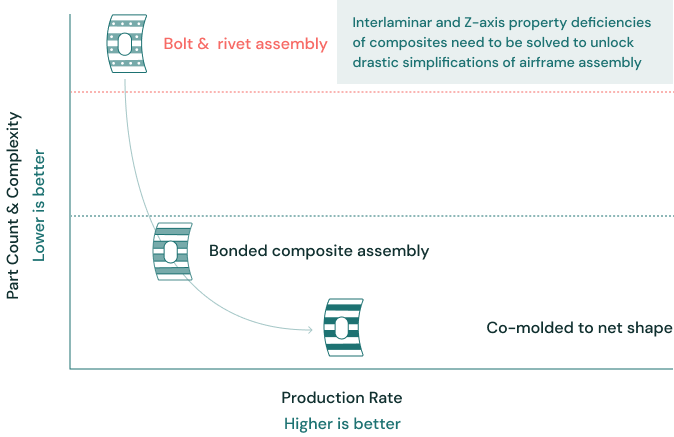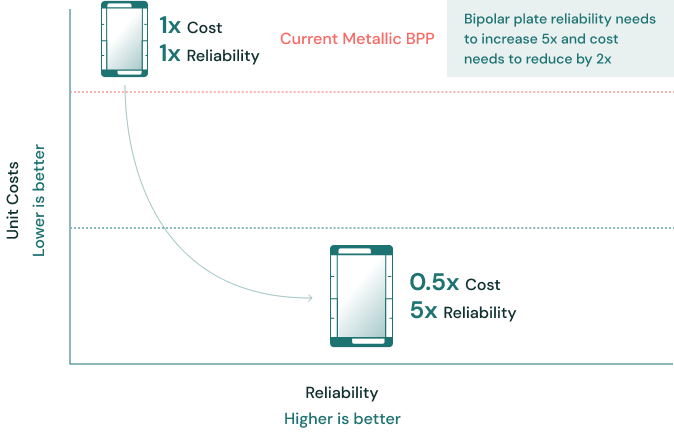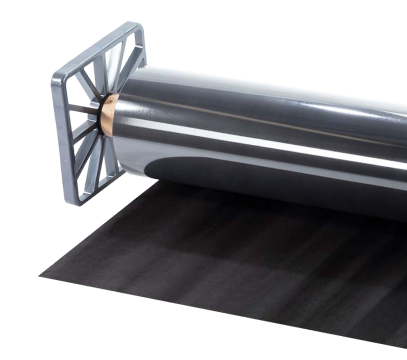
Thermal Interface
Materials
Solves the performance and reliability issues of advanced semiconductors for computing, telecom, and power applications
The impact of thermal interface materials (TIMs) to semiconductor cooling performance was 10%. That has now skyrocketed to 40% to 50%. TIMs are now a critical chokepoint for advanced semiconductors used across datacenters, mobile electronics, autonomous vehicles and beyond.
The next generation of aircraft with improved range and efficiency will need to be lighter. Yet, the usage of lightweight carbon fiber composites has plateaued. Delamination is the culprit and solving it can unlock the next 10% of airframe weight reduction.

Hydrogen fuel cells present a promising technology for decarbonizing trucks without compromising on range or payload capacity. However, their durability remains a significant challenge, due to metal contamination from the degradation of metallic bipolar plates. Addressing this issue is crucial for their broader application in the trucking industry.


Solves the performance and reliability issues of advanced semiconductors for computing, telecom, and power applications

Solves the reliability, weight, and cost issues of hydrogen fuel cells for heavy-duty vehicles.

Solves the durability and manufacturing issues of advanced composite materials for lightweight vehicles.